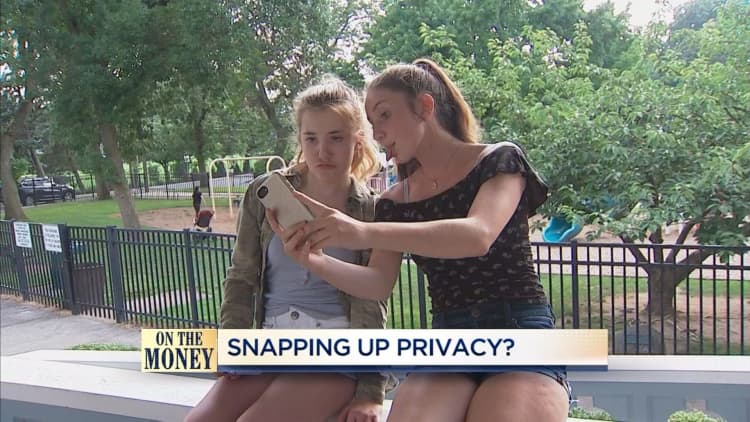
Snapchat is snapping up people's attention. The social media platform, which is based on sharing pictures, has 173 million daily users. Yet eyebrows are being raises over a new feature, which allows users' to share location information.
Its call Snap Map and lets users see when their friends are driving, listening to music or even playing tennis.
However, privacy and security experts warn users may be sharing too much — especially the teenagers who make up 22 percent of users, according to Snap Inc., the parent company of Snapchat.
If users opt in, Snap Map shares their location every time they open the app, even if it's not to share a new picture. The locations are so exact you can figure out exact addresses.
"The app is very addictive… every time you open it marks where you are," said attorney Michael Kasdan, a partner at Wiggin and Dana who specializes in privacy.
The new feature also works like a breaking news feed, letting you pan around the world to see what people are doing in real time. In addition to showing where friends are, the map shows hot spots, or red areas where crowds are gathering.
Snap Maps could become a way for advertisers to target customers, although Snap is yet to monetize the feature. Kasdan, however, has his share of concerns.
"There is that risk of real bad actors…someone stalking and someone being able to locate someone in the real world," Kasdan said.
"It creates sort of a flash mob mentalityMichael Downingformer LAPD chief
Use of Snap Map is optional and users need to opt in. You must be over 13 to use Snapchat.
Kasdan worries than Snapchat's youngest users, do not understand what they are agreeing to.
"Teenage users, a lot of them don't necessarily think about the privacy implications, they're more thinking about connecting with their friends, and whatever …everyone else is doing," Kasdan said.
GPS tracking apps are already on law enforcement's radar.
"It creates sort of a flash mob mentality," said Michael Downing, a former Los Angeles Police chief who worked in counter-terrorism. He now works as an executive vice president for Prevent Advisors, a consulting firm.
Downing says these apps have the potential to create what are known as "soft targets," areas where terrorists attack a big event attended by civilians. There is greater attention on them after a suicide bomber killed 22 people and injured more than 100 at an Ariana Grande concert in Manchester, England back in May.
"Soft targets are something we are trying to defend against right now, not only inside of stadiums and arenas but hardening the outside core where you have less control," Downing said.
Downing advises people to be aware of their surroundings instead of focusing on their phones. He also advises parents to talk to their kids about potential risks.
"The safety of our community is very important to us," a Snapchat spokesperson said in a statement provided to CNBC via e-mail.
"With Snap Map, location-sharing is off by default for all users and is completely optional. Snapchatters can choose exactly who they want to share their location with, if at all, and can change that setting at any time," the statement read. "It's also not possible to share your location with someone who isn't already your friend on Snapchat, and the majority of interactions on Snapchat take place between close friends."
NBCUniversal is an investor in Snap, Inc., the parent company of SnapChat.
On the Money airs on CNBC Saturdays at 5:30 am ET, or check listings for air times in local markets.




